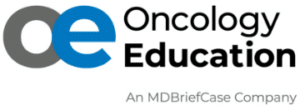ASCO® 2024 Highlights: Presenter Vignette – Pier Franco Conte

Pier Franco Conte
MD
University of Padova
Abstract# LBA500
A-BRAVE trial: A phase III randomized trial with avelumab in early triple-negative breast cancer with residual disease after neoadjuvant chemotherapy or at high risk after primary surgery and adjuvant chemotherapy.
Studies/trials discussed:
- A-BRAVE trial: A phase III randomized trial with avelumab in early triple-negative breast cancer with residual disease after neoadjuvant chemotherapy or at high risk after primary surgery and adjuvant chemotherapy.
Abstract of the paper or summary description of the presentation:
Background: Prognosis of pts with early triple negative breast cancer (TNBC) is still poor and new effective treatments are needed. TNBC is the most immunogenic BC subtype, and this may account for sensitivity to immune checkpoint inhibitors. The A-BRAVE trial was designed to evaluate the efficacy of avelumab, an anti PD-L1 antibody, as adjuvant treatment for pts with early TNBC at high risk. Methods: This is a phase III, multicentric, randomized adjuvant study comparing 1 year of treatment with the anti PD-L1 avelumab vs observation for TNBC pts considered at high risk of relapse. Pts were enrolled after they completed standard treatment with curative intent including surgery and neoadjuvant/adjuvant chemotherapy. High risk was defined as: 1) invasive residual disease (breast and/or nodes) after neoadjuvant chemotherapy (Stratum A), 2) >pN2/any pT, pN1/pT2, or pN0/pT3 after primary surgery (Stratum B). Pts were randomly assigned (1:1, balanced for strata A and B) to Avelumab 10 mg/kg I.V. q2w for 1 year or observation. Co-primary endpoints were disease free survival (DFS) in the total population and in Stratum A. 474 pts were needed to detect, in the total population, an improvement from 60% to 73.6% 3-year DFS rate (HR 0.6; 90% power, 1-sided test, alfa 2%). 172 DFS events were required to perform the event-driven analysis. Assuming a proportion of 70-80% pts enrolled in Stratum A, the expected power to detect an HR 0.6 at alpha allocated in this subgroup is 70-79%. Overall survival was a secondary endpoint. Results: From June 2016 to October 2020, 477 pts were randomly assigned from 64 Italian and 6 UK centers. 11 pts (3 avelumab, 8 control) withdrew consent immediately after randomisation and are excluded from further analyses. 378 pts entered Stratum A (83%), of whom 99 (57 avelumab, 42 control) received further chemotherapy after surgery prior to enrollment in the trial. Efficacy results for the two co-primary DFS endpoints and the secondary OS endpoints are reported in the table. Conclusions: One year adjuvant avelumab versus control does not significantly improve DFS in high-risk TNBC patients. Nevertheless, the secondary enpoind OS was significanlty improved with avelumab vs control. RFS and DMFS will also be reported. A centralised collection of tumor tissue, plasma and feces has been performed and will allow a number of correlative studies. Clinical trial information: NCT02926196.


